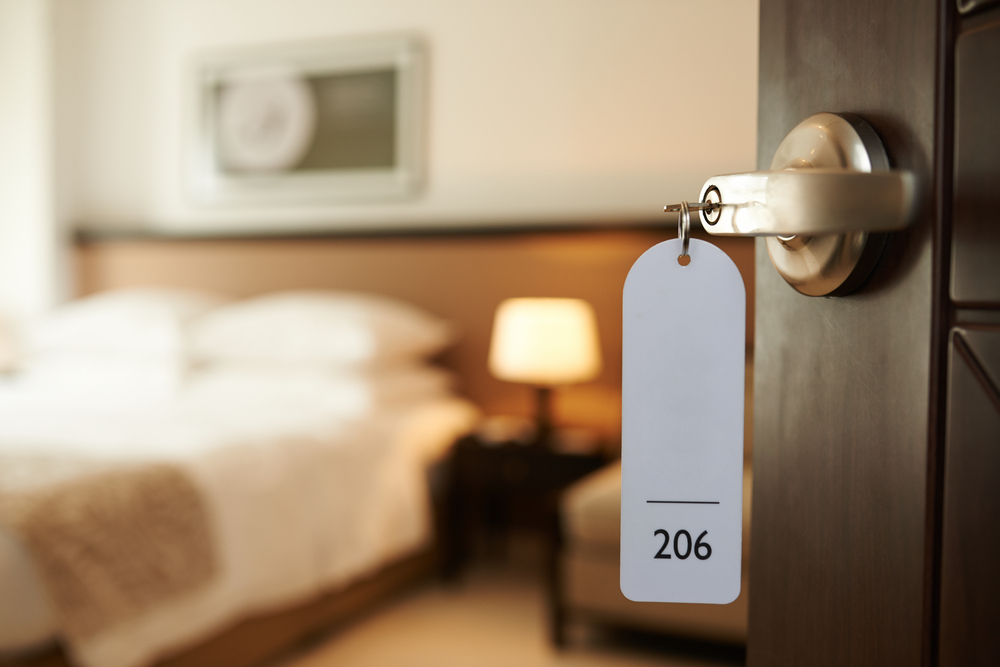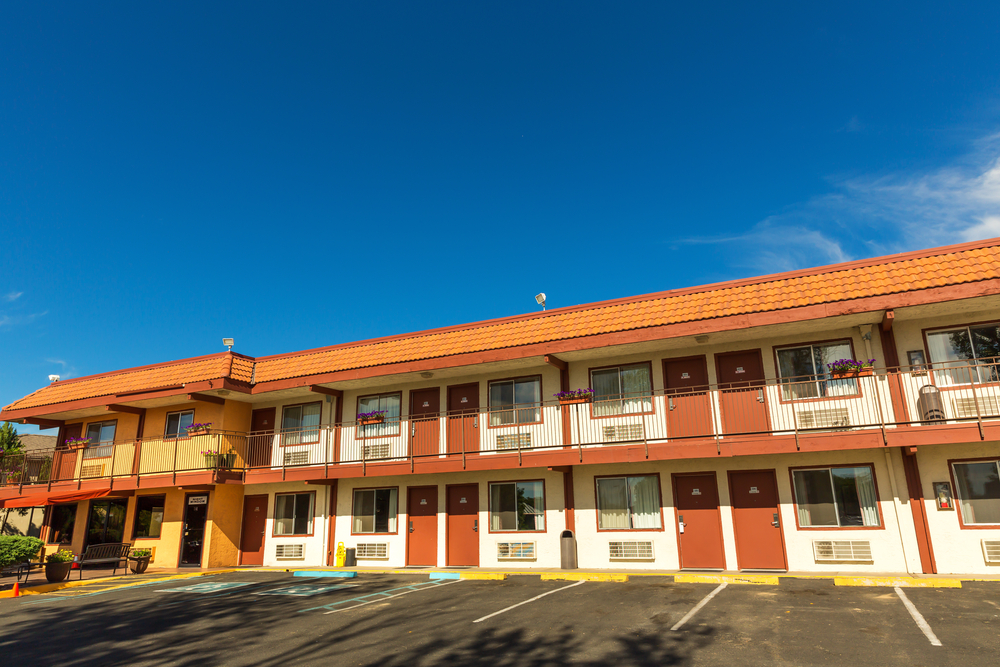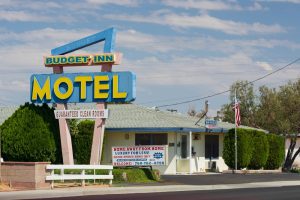Hotel, motel. What’s the difference? In short, a lot! Millions of people stay at both types of vacation properties worldwide, but they choose either one for a specific reason. Let’s delve into what makes one different from the other.
Table of Contents
What is the difference between a hotel and a motel?
In contrast to a hotel, which is usually large and has multiple floors and an enclosed entrance, a motel is typically a smaller, more intimate establishment with only one or two stories and only a few rooms.
Other significant differences are the cost, amenities, services, employees, design, and security. Also, hotels came into existence two centuries before motels did as well.
Rate
With hotels and motels, there may be differences in price and, more often than not, in the length of your stay. The location of a hotel is an important factor in determining the cost of a night in a hotel. In addition, their design is to accommodate extended stays, from a few days to a few months. Designed for shorter days, motels are usually less expensive than a hotel per night.
Services
The services provided by each of these establishments also differ. Room service, daytime spas, gyms, swimming pools, dining facilities, and laundromats are common hotel amenities. At motels, swimming pools and free breakfast are standard features but not always available.
Staff
Both businesses frequently employ a wide range of people. Hotel workers include housekeepers, doormen, parking valets, chefs, concierge, and more. It is not uncommon for a manager or two to be on call. Motels are similar in terms of staff but tend to be scaled-down compared to hotels and much more basic, usually with just maintenance, housekeepers, and receptionists on site.
Design
In terms of layout and construction, hotels and motels are vastly different. You will see rooms and corridors on every floor of many hotels, usually connected by a network of stairs, elevators, and hallways. In contrast, motels typically have a one or two-story designs with rooms accessible directly from the parking lot.
How did hotel and motels get their names?

The word “hotel” was conceptualized in the mid-1700s, according to Merriam-Webster, and is a derivative of the French word for an establishment that offers lodging, food, and other services.
Meanwhile, “motel” is a compound word formed by fusing the words “hotel” and “motor” and came about much later (in 1925). In this context, it refers to a facility that provides some but not all of the amenities of a hotel.
Why are motels close to the main roads and highways?
Motels came about when significant highway developments began in North America. They served as short-term stops for long-distance travelers and workers and eventually became prominent in many remote areas and even developed cities and towns.
Relatively new chain hotels appearing at highway junctions have caused motels to dwindle after the 1960s. The National Register of Historic Places includes several iconic motels.
How many types of hotels are there?
The category that a hotel falls into depends on the market, clientele, and location the hotel aims to serve. Properties that fall into this category include:
Casino Hotels
Casino hotels are those that feature a gambling component. Although the guest rooms and food and beverage operations may be quite opulent, their primary role is to support the casino. These hotels, like resorts, are geared toward leisure and vacationers. Gambling is a big draw at these hotels.
Casino hotels are now offering a wide variety of entertainment options, including spas, golf, and tennis courts. Specialty restaurants are also available at these hotels. There’s usually a minimum of one week required for the stay.
Resorts
While many resorts are located in the mountains or on a tropical island, others sit in even more remote locations. Most resort hotels offer a wide range of services for their guests, including food and beverages, parking, and room service. It isn’t just a place to sleep; these hotels also offer a wide range of activities in which guests participate.
The variety of entertainment and amenities that you’ll get at resorts make them destinations in themselves. Most resort hotels have a more laid-back vibe than their commercial counterparts. A stay of at least a week is required.
Commercial Hotels
Municipal commercial districts are home to many hotels, and they are mainly frequented by those traveling for business.
Many of these hotels offer complimentary magazines or newspapers, dining facilities, concierge service, and a large number of other amenities. One day to a few days is the typical length of stay at these hotels.
Hotels for Long-Term Stay
These hotels cater to people who need a place to live for an extended period. Some charge by the week while others charge by the month; a deposit is almost always required.
A laundry facility and a restaurant that serves a variety of cuisines are both possible inclusions and long-term stay hotels.
In the last few years, these hotels have transformed into co-op or condo hotels. From a few days to a few months, accommodation is possible.
Facilities for Conferences & Conventions
In order to attain the objectives of a conference, many hotels offer conference rooms and overnight lodging, as well as state-of-the-art media centers.
Additionally, there’s often a business center, a whiteboard, an exhibit chart, and other tools that help conferences go smoothly. Recreational areas such as golf courses, swimming pools, tennis courts, and running tracks are also available at these centers.
Visitor amenities may be limited at conference centers because these centers are more concerned with meeting organizers and coordinators than program participants.
One of the hotel sector’s fastest-growing segments is convention hotels. Display halls, ballrooms, and a variety of meeting rooms typically total at least 50,000 square feet at these hotels.
Airport Hotel
Business travelers, plane passengers, people on layovers, and airline employees all stay at these hotels because of their convenient location near the airport.
However, unlike commercial hotels, the hotel provides airport pick-up and drop-off service to and from the airport. Hotels in this category can be booked for as little as a few hours or as long as a few days in advance.
Vacation ownership hotels are known as timeshare hotels. It is the idea that for a predetermined period, such as a week or longer, an individual gets access to an apartment or other type of lodging in a tourist complex.
It’s like paying for your vacation ahead of time at a hotel. In this case, the buyer has to contribute a single capital amount and an additional yearly maintenance fee.
Maintenance and general upkeep of the residence and common spaces, as well as utilities such as power generated, heat, and water, are generally included in the monthly fee.
Floating Hotels
These hotels, as the names indicate, are located on deluxe vessels or liners. These tend to operate in coastal areas, such as rivers, seas, or oceans. Suites on cruise ships tend to be small, and all of the furniture is permanently attached.
It primarily serves guests who plan to stay for an extended period. It’s a hotel in its own right, with all the amenities you’d expect from a hotel on land. It offers lodging and food service, play areas, swimming pools, and many other programs.
Types of Motels
There are short-term and long-term motels, just as there are hotels in those categories. The short visit can range from a day to a couple of weeks.
Some motels offer extended stays, but the amenities are usually limited. You might have to do laundry at an offsite laundromat, for instance. However, some motels provide that service. You will have to pay every week.
What types of guests stay at long-term hotels and motels?

Guests at extended-stay hotels and motels come from all walks of life. In the same way that these properties target specific demographics with their amenities and designs, so, too, do many of these businesses.
Low-maintenance properties keep their prices as low as possible to provide residents with a place to live without having to worry about the cost of furniture, utilities, and other necessities.
Affluent properties with a wide array of amenities are an experience in and of themselves. They cater to the needs of both leisure and business travelers, and they do so at reasonable prices.
Mid-range hotel guests are typically business travelers who require the comfort of home but don’t want to commit to another mortgage or long-term lease. In many cases, they are drawn to the opportunity to prepare meals in their private kitchen and the hotel’s additional amenities.
To cover the costs of their travel, lodging, and food, companies frequently provide business visitors with a per-diem or stipend.

















